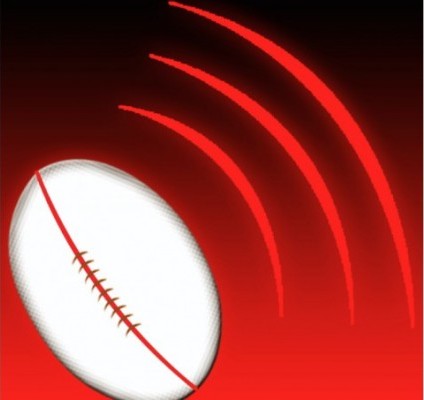What About That Legacy Money?
What About That Legacy Money?
The story has been that World Rugby will be funneling some funding to American rugby in advance of the 2031 and 2033 Rugby World Cups.
Is that money really coming? How much?
We haven't seen any right now. Maybe funding the Anthem RC in Charlotte is part of it. What's going on?
We've got a video talking about all of that.
Alex Goff:
Okay, so maybe this is the big one. Hopefully long anticipated. Let's talk about the legacy money.
USA Rugby, or the United States, is hosting the Rugby World Cup in 2031 and 2033. Men's first, then women. There's all of this business talk about legacy money.
Generally speaking, what's happened is that the country that hosts the Rugby World cup gets a piece of the profits going past the time that they've hosted it. That's a legacy. That's able for the. Able to use that to build, the game further in that country.
So that's what you get for hosting it. There used to be there was a, you know, World Rugby got, some of the income, mostly sponsorship stuff, TV rights, and the host nation took in the gate. They've changed that a little bit. But the idea is there's a profit sharing. For USA Rugby that only works if you bring the money in first.
Because there's got a little. There's a lot to be done in terms of marketing the game, improving the game here in the States, having more people play, all those things. Lots of numbers were thrown around. I was skeptical about how much people are like, $100 million. Whoa. $100 million seems a lot.
Understanding that USA Rugby would get more on the back end still, $100 million seemed a lot up front. It's not gonna be that much. 50 million, something like that. Well, Alan Gilpin, World Rugby CEO, talked about this, and it came through with a discussion with journalists.
We talked a little bit more with some other people just to confirm some of these things. It's not 100 million, it's not 50 million. It's $270 million potentially as early as Q4, 2025, like a few months. Starting to get some of that money over the course of the next seven years or so. I don't know how it's apportioned out. It could be apportioned out, maybe seven, eight years. Round that to 30, you know, $33 million a year.
Or do you front end it? We don't know. But $270 million. Now, that doesn't mean that there is a freebie, bonanza. There's a run on free stuff in American rugby. Doesn't mean that. What it does mean is that there's an opportunity for a bunch of things to happen. So here's how it's kind of going to work. Out the various areas of American rugby are going to be getting some money. That money then will be apportioned to projects which have key performance indicators.
There's a return on investment, there's tracking things like that to say, okay, this is what we want. It's not just going to be say a jobs program for people in rugby, but youth in High School. US Youth & high school is going to get some money. One of the things they're interested in specifically is lowering the cost of training coaches and referees, but especially coaches.
One of the things they're interested in is helping teams get started. That's huge for USA youth in high school. Right, that makes sense. Right?
The college game is going to get some money. Is that CRAA? This is a CRAA ball. That's around. But where's my actual CRAA ball. Is it, is it CRAA or.
I mean that's essentially the college council. The college council will have money. What will they be interested in? They'll be interested in pushing potentially. It would be great to see their money invested in pushing the varsity initiative for women's college teams. But that's not the only thing. What about you know, just again bolstering teams, helping grow teams, fields, referees, coaches, things like that. There will be other issues there.
Will it be helping pay for better championships to make championships easier? Maybe. Could it be working on elite high performance teams? Maybe. But I think building the grassroots and building the game and supporting the game and finding a way to get more people to play. I think that's a huge thing that's possible.
That's a fool's game. And I think everybody knows that USA Rugby in general get some money and that they'll be pushing big, time for membership, drive. But I think also in terms of what CEO Bill Goran has talked about is long term sustainability.
So that's the other thing is that how do you do that? How do you figure out a way to make sure that that money or the benefits of that money come back further on? Exactly. As Goran said to me, we're going to host the World Cup 2031, 2033, and then that's going to go away and we're going to be here.
So what do we do now? Actually personally for me, I've said this before. I think if the USA World cup is successful, we're going to see it again and we're not going to have to wait too long. I was thinking like 16 years, something like that. 2047, if it really works in 2031, I think you're going to see it again in the States, which will be great for the usa. It'd be great for rugby in America. But USA RW has got to operate like it's not coming back for a long time.
And they do that by being smart, with their money and smart with how they spend it.
And then there's, there's sort of an interesting twist there. A couple of things. One, high performance certainly that's going to be huge. Right. Some of that money is going to go to the men's and women's national 15s teams. It has to. And what it can potentially go to would be say, centrally contracting some players, something like that. That would be that would be useful to
American rugby as a whole. This is not talking about major league rugby or anthem, because that's sort of a separate thing that World Rugby is doing already. That's not, their, the legacy money.
But there's probably some spill over there. But I could see that there being some, money go there. The problem with that. The problem with that is that you can get rid of. You could lose a lot of money very quickly.
If you start centrally contracting, say, 40 players, 20 men, 20 women, pay them 50 grand a year, that's $2 million. And you think, well, 2 million out of 270. No, it's 2 million out of, say, 30 a year.
That's also being earmarked for a whole bunch of other things. So you got to be careful about that because you can start eating into that, and suddenly it's 3 million, and suddenly it's 4 million. And suddenly you're spending all this money and say, hey, we had to pay these players. But what about fields and coaches and support for grassroots teams so that when everybody goes away, there are people who are playing rugby for their neighborhood rugby team, because that's huge.
There is kind of a revolving door on this a little bit. So some of the money goes toward pushing for events. So, it's earmarked a little bit to get test matches here in the United States. There's got to be test test matches.
Just like we have New Zealand versus Ireland coming up. There will be other ones coming up as well. So you spend some money to pay for those teams come in. Because remember, somebody loses a home game if they're playing in the United States, but if that event then brings in some income, let's say you spend $4 million on that game and you make two and a half million, then that pool of legacy money only lost one and a half million.
You get that money back into the pool. So that's important to consider. There's no, like, laundering that money through into another organization, hopefully, but that's the deal. USA Rugby is going to get a big pile of money soon, and they're going to be able to apportion it with strings attached very.
It's important. Those strings are quite strong. Strings, strings attached to youth in high school, to college, to club community, to high performance and to major events and then probably some USA Rugby operations. All of these things are important, for the growth of the game.
It's happening according to World Rugby. World Rugby say it's happening and it's happening soon. What, can that be for you? Well, we're gonna see. What it could mean, though, is that struggling teams might get a little help. And I think that's one of the things that's important.
I also think an initiative to get the rugby more into schools, on the high school and even the middle school level, that's hugely important. And they could employ people to actually do it. The problem is USA Rugby has a horrible history in terms of either employing people or using volunteers to do community things and having that be tracked and say, hey, you're not doing your job, you're out, somebody else is in.
Once somebody gets assigned, they're just sort of set free to do nebulous youth development things. So it has to be tracked. KPIs, ROIs and, maybe some more USDs.











